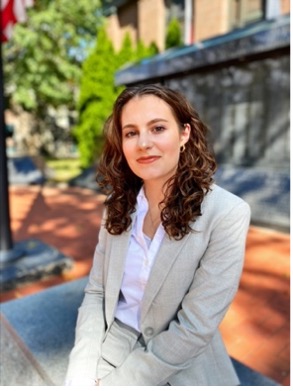"Building Your Dream Team: Tips for Choosing Your Thesis Committee"
by Jeff Koslofsky - Senior Marketing Communications Manager - Graduate Education and Postdoctoral Affairs
Choosing a thesis committee is a pivotal step in a graduate student’s academic journey. The right committee can influence the quality of your research and the trajectory of your career. A well-assembled committee provides not only subject-matter expertise but also mentorship, constructive feedback, and professional connections that will be invaluable throughout your studies and beyond.
In a recent episode of The Next Step podcast, Cindi Lewis ’14M (PhD), who now serves as executive management to the Director General at the World Health Organization, and Vivek Nanda ’13M (PhD), Assistant Professor at University of Alabama at Birmingham shared their thoughts on factors to consider when selecting your thesis committee. From finding diverse expertise to fostering relationships between members, these tips will help you make informed decisions to set yourself up for success.
Diversity of Expertise
A diverse thesis committee can offer a broader range of perspectives that improve your research. By including members with varied academic and professional experiences, you’ll gain insights into different methodologies, theoretical approaches, and practical applications. This diversity can help you anticipate and address potential criticisms from a wide audience, making your work more robust and comprehensive.
“You always want to hear different perspectives. It’s important to know what other people can bring to the table,” says Nanda. “An outside idea is sometimes the best idea.”
Research Strength and Funding
It sounds practical, but if your committee members are well-funded, that means there’s potential to transition into their lab after graduate school. Members who lead successful research programs are often well-connected in their fields, which opens up the door to networking opportunities.
Networking Opportunities
“The network of your committee members can de facto become your network,” says Lewis.
Choosing committee members with robust networks is like gaining an extended team of advocates who can help you navigate your career beyond graduation. By fostering strong relationships with your committee members, you gain access to their broader network, which can be instrumental in securing postdoctoral positions, research collaborations, or job opportunities. Their connections might lead to doors you didn’t even know existed.
Publishing Experience
Members with extensive experience publishing in high-impact journals bring invaluable insight into the process of crafting research papers that stand out. They understand what it takes to navigate the peer-review system, select appropriate journals, and present your work in a way that captures attention.
Additionally, their reputation as published researchers can lend credibility to your work. Being associated with committee members who frequently publish in reputable journals increases the visibility of your research.
Chemistry and Support
Select individuals with whom you have good chemistry and who genuinely care about your success. They should be willing to advocate for you and support your career growth.
“Are they willing to pick up the phone, are they willing to write a letter of recommendation,” says Lewis. “I think you’ve got to be able to tease out whether you have that chemistry and those kinds of folks who would absolutely believe in you and stand up and advocate for you.”
Track Record of Mentorship
Talk to their previous mentees. Look into their career paths. See how long it took them to complete their thesis and get to their current positions. This provides insight into their mentoring style and effectiveness.
The ideal committee will challenge and guide you, pushing you to produce your best work while offering mentorship and support.
By carefully considering these factors, you can build a team that not only enhances your research but also supports your academic growth and career goals.
To learn more about internships or job shadowing opportunities, check out the URBEST Internship & Career Exploration webpage or make an appointment with Eric Vaughn through Handshake.
Katherine Bognanno | 1/8/2025




